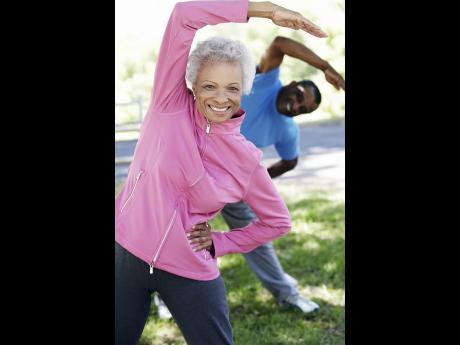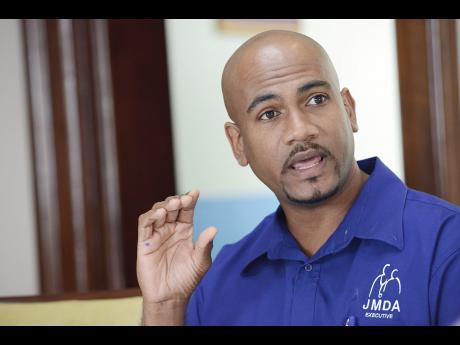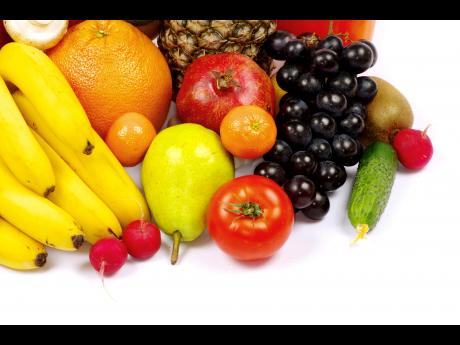Dr Alfred Dawes | New Year, older me
As we look forward to a new year and new opportunities, we often forget what will be one of the limits of what we can hope to accomplish - our ageing bodies.
Leon Trotsky aptly described the mental resistance to ageing when he said that old age is the most unexpected of all things that can happen to a man. The invincibility of youth slowly fades. We get tired more easily and take longer to recover from nights out and injuries, and most importantly, we have to start thinking about diseases that are a consequence of ageing. Childbirth and rearing become a race against time. Our beauty begins to fade. Through all of this, we must embrace healthy ageing and accept the inevitability of our own mortality.
As a result of the scourge of chronic non-communicable diseases (NCDs) such as obesity and cardiovascular diseases, we are entering an era where the life expectancy of upcoming generations will be lower than that of their parents. This is due to the fact that persons will be getting lifestyle diseases at an earlier age because of their diets and lack of physical activity.
A recent study looking at high schoolers in Jamaica found that approximately 20 per cent of adolescents are overweight and obese. This has serious implications, as childhood obesity is associated with an increased risk of diabetes, hypertension, and heart disease. Our youth are in almost as much trouble as their grandparents.
If we continue along this path, we will see a rapid worsening of the burden of chronic NCDs over the next decade. Adding obesity to the pressures of being an adolescent, a student, and finding your identity can be too much for some minors. We need to take a closer look at this at-risk group and formulate interventions that include psychological support.
CAN SAVE LIVES
As an adult in pretty decent shape, I still have to face the prospects of screening for prostate cancer in a few years. Although men shy away from them, the digital rectal examination and blood tests can save their lives with an early detection of cancer.
As I am quite familiar with the statistics that show Jamaica having one of the highest rates of prostate cancer in the world, there is no question as to whether I'll be doing my screening.
For women, getting pregnant carries more urgency when they fall into the range of advanced maternal age, and with it, the attendant risks to themselves and their unborn child.
Breast cancer, which affects one in 21 women, becomes more prevalent after age 40, the recommended age for screening. For some women, screening is recommended at an earlier age because of an increased risk.
The 30s and 40s also bring a fall in hormone levels. Men find their declining testosterone levels resulting in decreased sexual virility, and their muscle mass begins to fall naturally. For women, fat begins to appear much easier, and is twice as hard to get rid of.
PEAK BONE MASS
Our peak bone mass is achieved by our mid thirties. Thereafter, it begins to decrease as our bodies begin a slow decline. If our bone mass declines to a critical point, we end up with osteoporosis - weak bones that are prone to fractures, especially of the hip. Screening for bone density, performing resistance exercises, and taking supplements will slow this decline and preserve our bone and lean muscle mass.
Even though we begin to require less sleep, missing out on restful sleep starts to have noticeable effects on our blood pressure, fat percentage, and ability to perform assigned tasks. Sleep, which we look at as a luxury, becomes more of a necessity to staying healthy.
When I was in medical school, a fellow student who is now a gynaecologist was asked what are the terms used to describe the onset and cessation of menstruation in girls and older women. He guessed menarche when a girl first sees her period and when she no longer sees her period, anarchy.
Although it doesn't get that bad, a woman around the time of the change will see many changes in her body and her mind. Her hormones that protected her from bone loss and heart disease fall to levels where her risk of heart disease is similar to that of a man. Fractures become more frequent after menopause, and weight gain becomes easier with each passing decade.
Men will have to confront the problems of an enlarged prostate, BPH (benign prostatic hyperplasia, and an ever increasing risk of prostate cancer. Both sexes have an increased risk of colon cancer and screening is recommended, starting at age 50.
MORTALITY BECOMES A REALITY
Diabetes, hypertension, high cholesterol, and heart disease become a part of many persons' daily lives with pills, injections, and daily self-testing being the routine.
By the time the 60s and 70s roll around, you will have buried friends and family who are younger than you. Your own mortality becomes real, as each new year brings with it more creases and lines in the mirror. At the same time, the ones among you who wake up early to walk seem to be younger, and in some cases, rolling back the clock.
In medicine, we don't simply use 'age'. We use the term physiological age, as it tells us who has a body that is younger than their chronological age, and those whose bodies are that of an older person ravaged by time and abuse.
Our date of birth is set in stone, but our physiological age is in a state of constant flux.
Adopting a healthy lifestyle and controlling the risk of getting and treating our diseases can reverse our physiological age.
Accepting our own mortality will open our minds to regular screening for diseases so we can treat them at an earlier stage.
If there is one New Year's resolution we all should be making, it should be to get physiologically younger in 2018.
Healthy ageing is my resolution. What is yours?
- Dr Alfred Dawes is a general laparoscopic and Weight loss Surgeon at Island Laparoscopy and Medical Care; Email: info@islandlaparoscopy.com; yourhealth@gleanerjm.com



